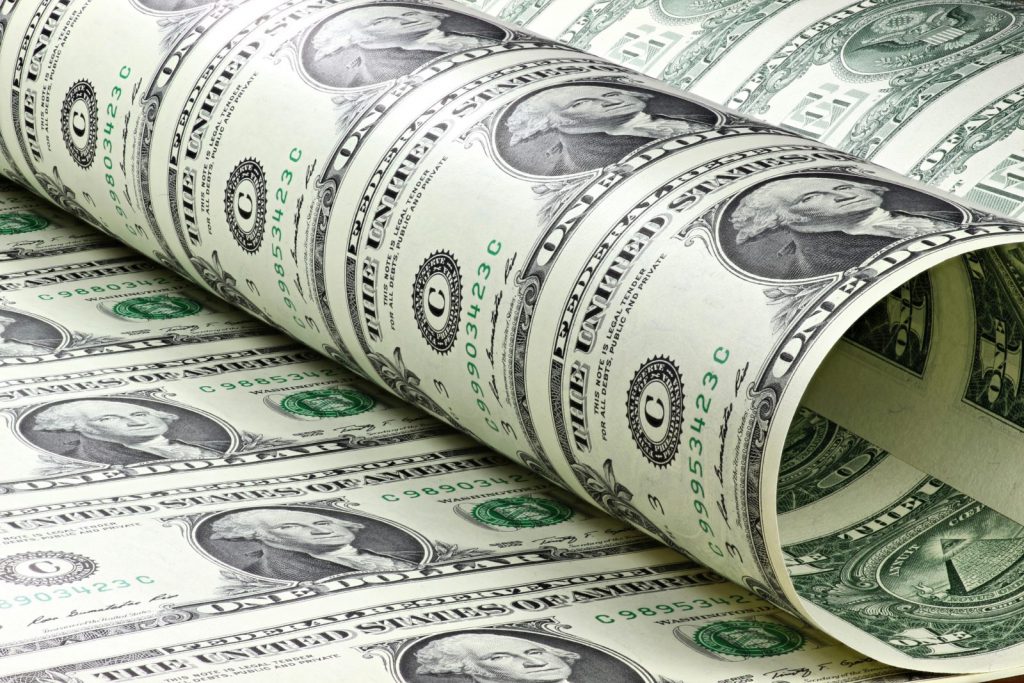
Published August 6, 2018
The round of bitter, self-pitying tweeting that President Trump began around 4:30am on Sunday has been dissected a good bit, especially for what he had to say about that infamous Trump Tower meeting. But another facet of it deserves a word too. In the course of a couple of tweets in defense of his trade policy, the president wrote:
Because of Tariffs we will be able to start paying down large amounts of the $21 Trillion in debt that has been accumulated, much by the Obama Administration, while at the same time reducing taxes for our people. At minimum, we will make much better Trade Deals for our country!
This is a rare instance of the president expressing concern about the government’s finances and so the country’s fiscal prospects. But it is also an (altogether commonplace) example of an utterance by the president that leaves me unsure whether it would be worse if he believed what he was saying or if he knew it wasn’t true. Either would be bad enough.
This claim is surely just a throwaway line for President Trump, but maybe we can use it as an excuse to confront the state of our government’s finances for a second—and to see where they seem to be headed.
Trump is right that the total outstanding debt of the federal government is now about $21 trillion. And he’s also right that a huge amount of that debt was racked up in the Obama years: On Obama’s first day in office, the government’s debt was about $10.6 trillion, on his last day it was about $19.9 trillion—so our debt almost doubled while he was president. The president doesn’t accumulate debt on his own of course, indeed the Constitution plainly puts Congress in charge of spending, taxing, and borrowing, and all the president can do is try to influence legislators and veto what he doesn’t like. But Obama wasn’t an innocent bystander, and at least it can be said that this debt built up during the time marked by his presidency.
The pace of borrowing has not slowed one bit since Obama left office, however. In fact, annual deficits are growing—the Congressional Budget Office expects next year’s deficit to be just under a trillion dollars, and then projects that annual deficits will be above that number every year from then on, reaching $1.5 trillion by 2028. Here’s a quick chart, from CBO data, of the recent history and projected near-term future of the deficit:

The huge spike after 2008 was of course largely the result of the Great Recession, but CBO is not projecting another huge recession in the coming years. In fact, their deficit forecast, which assumes another decade without a significant slowdown, is almost certainly too rosy. They project this explosion of deficit spending by just extending current spending and taxing patterns forward—the spending and taxing patterns put or kept in place by a Republican president and Congress.
It’s true that the Democrats are now trying to outdo each other for who can propose more outlandish ways to make this problem worse. They feel increasingly pressured to pretend to support an approach to health care, for instance, that would double federal spending. But the projections we’re looking at here are offered two years into a period of Republican control in Washington, and there don’t seem to be many Republicans eager to do anything about them.
Since the debt is a function of deficits, this means CBO expects our national debt to grow very quickly over the coming years, reaching almost $30 trillion a decade from now. The main reason is, of course, the growth of entitlement spending—Social Security, Medicare, and Medicaid.
New or higher taxes could restrain the growth of these deficits some, but there is no way that taxes (whether the increases in income and payroll taxes the Democrats favor or the new and higher tariffs the president wants) could keep up with the trajectory of projected spending. That will take entitlement reforms that restrain future spending growth, and President Trump has made it pretty clear so far that he is not interested in those.
So whatever you think of tariffs, “paying down large amounts of the $21 Trillion in debt that has been accumulated” is not something they could achieve. Maybe the president knows that, maybe he doesn’t. Clearly he doesn’t care. But we should.
Yuval Levin is the Hertog Fellow at the Ethics and Public Policy Center.








